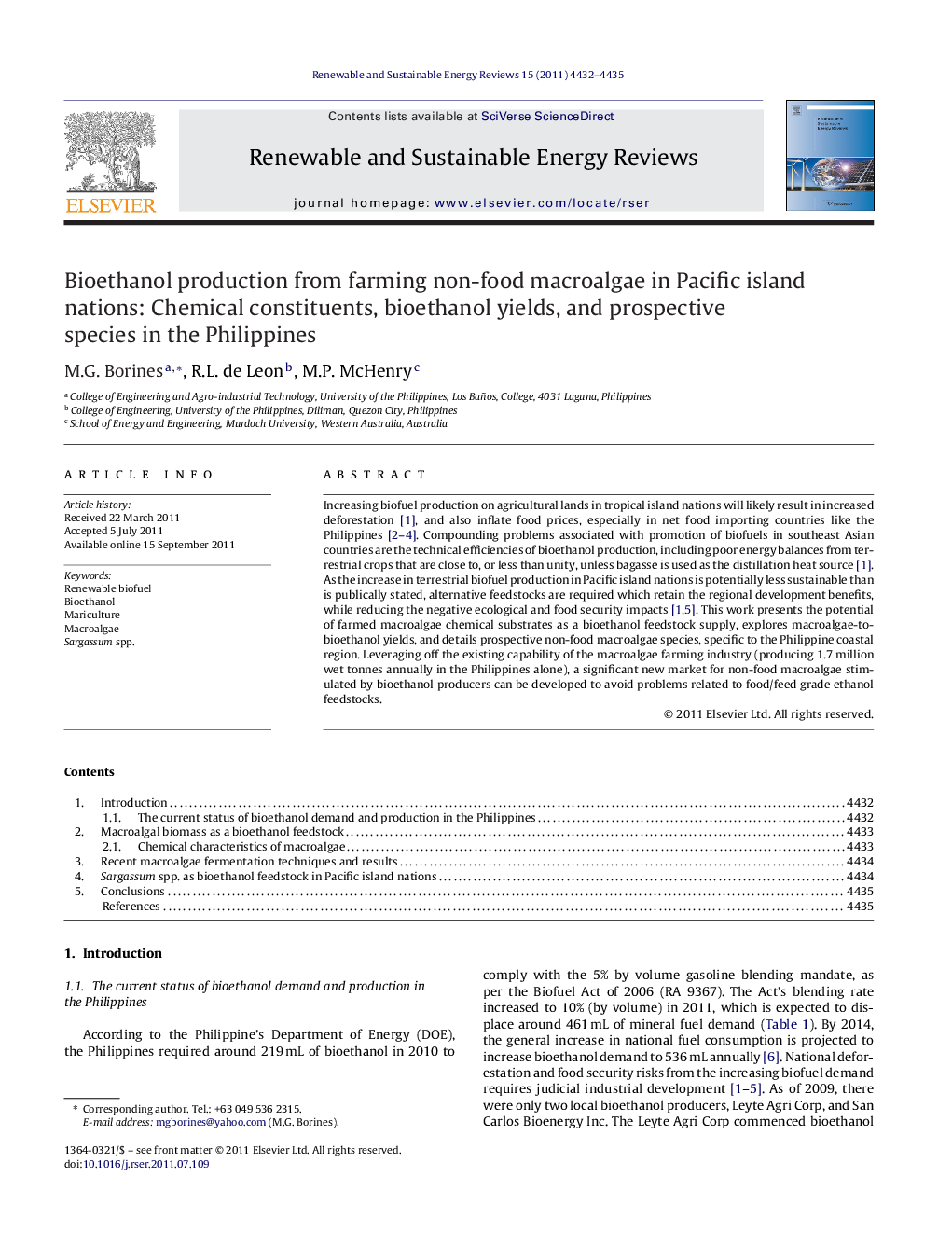| Article ID | Journal | Published Year | Pages | File Type |
|---|---|---|---|---|
| 10689958 | Renewable and Sustainable Energy Reviews | 2011 | 4 Pages |
Abstract
Increasing biofuel production on agricultural lands in tropical island nations will likely result in increased deforestation [1], and also inflate food prices, especially in net food importing countries like the Philippines [2], [3], [4]. Compounding problems associated with promotion of biofuels in southeast Asian countries are the technical efficiencies of bioethanol production, including poor energy balances from terrestrial crops that are close to, or less than unity, unless bagasse is used as the distillation heat source [1]. As the increase in terrestrial biofuel production in Pacific island nations is potentially less sustainable than is publically stated, alternative feedstocks are required which retain the regional development benefits, while reducing the negative ecological and food security impacts [1], [5]. This work presents the potential of farmed macroalgae chemical substrates as a bioethanol feedstock supply, explores macroalgae-to-bioethanol yields, and details prospective non-food macroalgae species, specific to the Philippine coastal region. Leveraging off the existing capability of the macroalgae farming industry (producing 1.7 million wet tonnes annually in the Philippines alone), a significant new market for non-food macroalgae stimulated by bioethanol producers can be developed to avoid problems related to food/feed grade ethanol feedstocks.
Related Topics
Physical Sciences and Engineering
Energy
Renewable Energy, Sustainability and the Environment
Authors
M.G. Borines, R.L. de Leon, M.P. McHenry,
